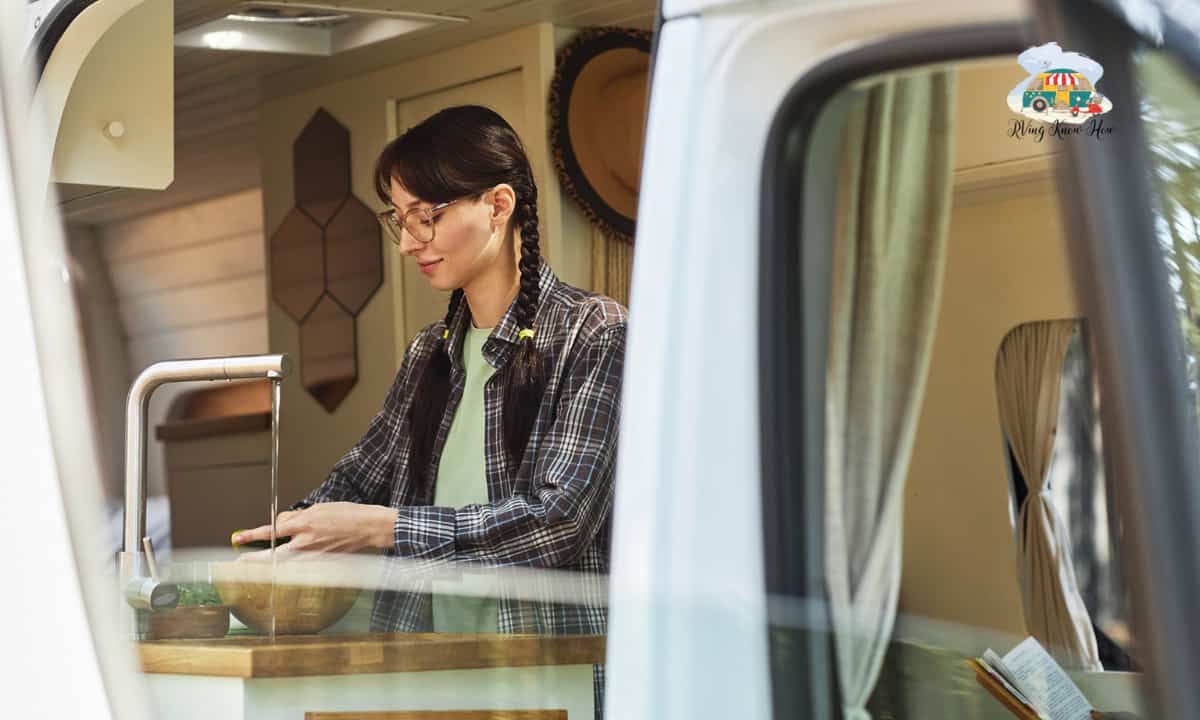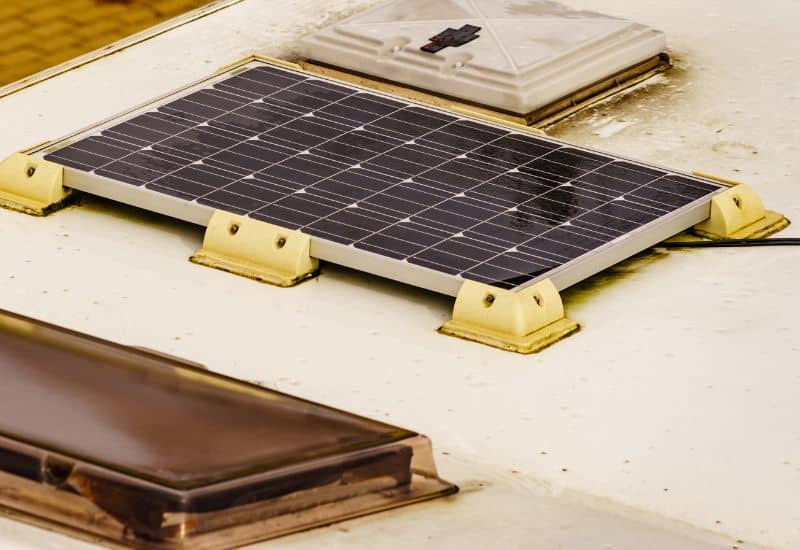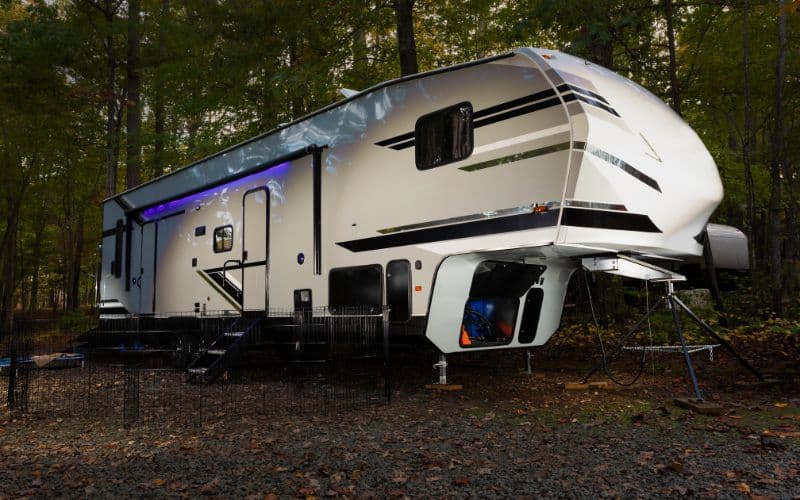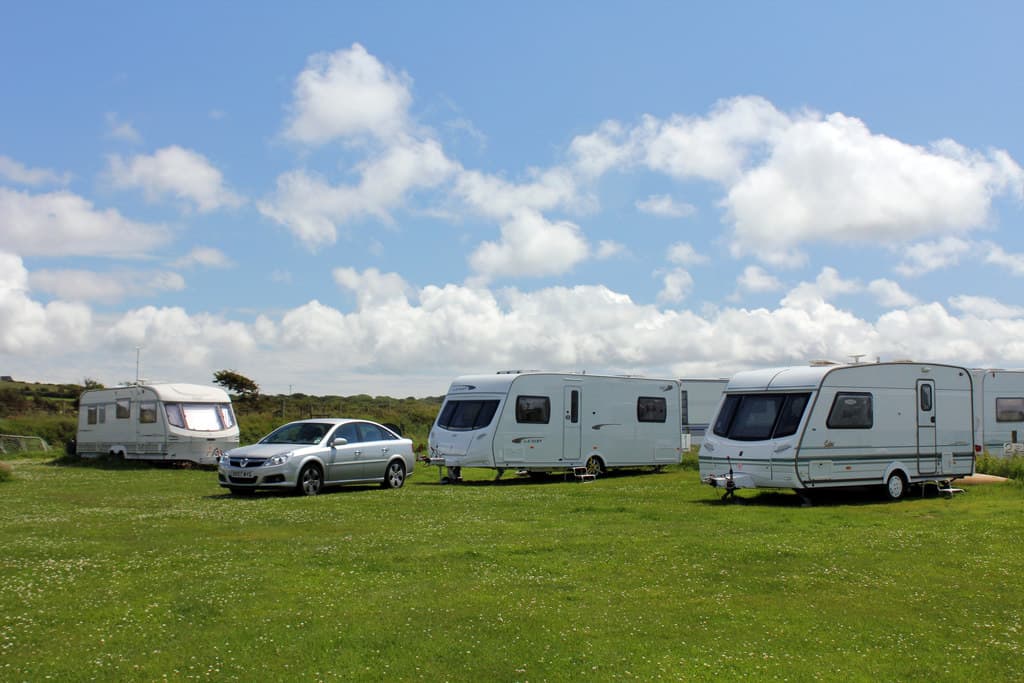Ensuring a comfortable and enjoyable experience is paramount when embarking on RV adventures. One often overlooked aspect of this journey is the water quality used in your RV. This is where RV water softeners come into play. Explicitly designed for RVers, these compact devices play a crucial role in reducing the negative effects of hard water.
By removing minerals that cause limescale buildup and other issues, RV water softeners help maintain the efficiency and longevity of appliances while providing softer, gentler water for showering, cooking, and cleaning. Discovering the importance of RV water softeners can lead to a more pleasant and worry-free travel experience.
Let’s explore how RV water softeners play a vital role in reducing the adverse effects of hard water and provide you with a more pleasant and worry-free travel experience. In the discourse, we will explore the importance of water softeners for RVs and guide you through selecting, installing, and maintaining the right water softener for your needs.
Why Use a Water Softener in an RV?
An RV water softener is a device specifically designed for RVers. These compact devices play a crucial role in reducing the negative effects of hard water. By removing minerals that cause limescale buildup and other issues, RV water softeners help maintain the efficiency and longevity of appliances while providing softer, gentler water for showering, cooking, and cleaning.
Using a water softener in an RV offers several benefits that can significantly enhance the overall RVing experience. A water softener is a device that eliminates minerals, like calcium and magnesium, from hard water using ion exchange. This process replaces the hardness minerals with sodium or potassium ions. Here are some key advantages to consider:
- Softer water: Hard water contains high levels of minerals, such as calcium and magnesium. These minerals can leave behind residue, stains, and scale on surfaces, making cleaning more difficult. With a water softener, these minerals are removed, resulting in noticeably softer water. Soft water feels smoother on the skin and leaves hair more manageable, providing a more pleasant bathing experience.
- Better skin and hair: A study by a group of dermatologists from Leanskin found that hard water can negatively affect the skin and hair. It can strip away natural oils, leaving the skin dry and itchy and causing hair to become dull and brittle. Soft water, on the other hand, is gentle and less drying. It allows the skin to retain its natural moisture and leaves the hair feeling softer, shinier, and lustier.
- Easier cleaning: RV soft water system significantly affects cleaning tasks. Soap and detergents lather more easily in soft water, improving cleaning efficiency. Whether washing dishes, doing laundry, or cleaning surfaces, you’ll find that less soap or detergent is needed to achieve the desired results. This saves money and reduces the risk of residue buildup on dishes, clothes, and other surfaces.
- Extended appliance life: Hard water can cause mineral buildup in appliances such as water heaters, coffee makers, and pipes. Over time, this buildup can reduce the efficiency and lifespan of these appliances. Using a water softener can prevent or minimize mineral deposits, prolonging the life of your RV’s appliances and ensuring they continue to operate at their best.
Types of Water Softeners for RVs
When considering a water softener for your RV, you have two primary options: whole-house and portable water softeners.
Whole-house water softeners are typically installed permanently in your RV and treat all the water coming into the RV, including both hot and cold water. These systems are more suitable for larger RVs or those with a more permanent setup. They require professional installation and are connected to the RV’s plumbing system.
On the other hand, portable water softeners are compact and easily transportable, making them a popular choice among RVers. They are designed to be connected directly to the water source and treat the water before it enters the RV. Portable water softeners are convenient for smaller RVs or frequently change locations.
Comparing Water Softener Types
When considering water softeners for your RV, comparing and understanding the available types is essential. Let’s examine the two main categories:
Whole-House RV Water Softener System
- Features: Whole-house systems are designed to treat all the water entering your RV. They often come with multiple stages of filtration, including water softening and additional filtration for removing sediments and contaminants.
- Benefits: These systems provide comprehensive water treatment throughout your RV, ensuring softened water for all your needs. They offer convenience, as they work automatically without requiring manual adjustments.
- Drawbacks: Whole-house systems require more space for installation and may need professional assistance. They can also be more expensive upfront.
Portable RV Water Softeners
- Features: Portable water softeners are compact, lightweight units that can be easily installed and removed. They typically use ion exchange resin to extract minerals from the water.
- Benefits: Portability is the key advantage of these softeners. You can use them both in your RV and at external water sources. They are often cost-effective and straightforward to install without professional help.
- Drawbacks: Portable softeners have limited capacity, and the regeneration process needs to be performed periodically. They may also require manual adjustments for optimal performance.
Installing a Water Softener in Your RV
Installing a water softener in your RV is a straightforward process. Here’s a step-by-step guide to help you through the installation:
- Determine the type of water softener that suits your needs and available space in your RV.
- Select a suitable location for the softener, ensuring easy access for maintenance and regeneration.
- Shut off the water supply to your RV and drain any excess water.
- Cut into the main water line using a pipe cutter or appropriate tool.
- Install the bypass valve, which allows you to divert water around the softener when needed.
- Connect the inlet and outlet ports of the water softener to the main water line, following the manufacturer’s instructions.
- Connect the drain line from the softener to an appropriate drain outlet.
- Check all connections for leaks and ensure proper sealing.
- Open the water supply and check for any leaks or irregularities.
Follow the manufacturer’s instructions to set the regeneration schedule and add the appropriate salt or regeneration solution.
Maintaining Your RV Water Softener
Regular maintenance is essential to keep your RV water softener in optimal condition. Here are some tips to help you maintain your water softener:
- Regeneration: Follow the recommended schedule provided by the manufacturer to regenerate the water softener. The frequency may vary depending on the model and water usage.
- Salt/regeneration solution: Add the appropriate salt or regeneration solution to the softener according to the manufacturer’s instructions. Use high-quality salt or regeneration solution for better results.
- Cleaning: Periodically clean the resin tank and other water softener components to remove any accumulated sediment or debris.
- Check for leaks: Regularly inspect the connections and valves for any signs of leaks. Repair or replace any faulty components promptly.
- Troubleshooting: Familiarize yourself with common troubleshooting techniques provided by the manufacturer in case of any issues with the water softener.
Review of Best RV Water Softeners
While choosing the best RV water softener on the go, it’s important to consider your specific needs and preferences. Here are some popular RV water softener options to consider:
On The Go OTG4-DBLSOFT Portable 16,000 Grain RV Water Softener
The On The Go OTG4-DBLSOFT is popular among RVers for its compact design and exceptional performance. With a 16,000-grain capacity, it effectively softens water and reduces the hardness of minerals. This unit is easy to install and regenerate, making it a convenient option for those constantly moving.
Watts Water Quality/Condition M7002 Flow-Pur RV-Pro 10,000 Water Softener
The Flow-Pur RV-Pro 10,000 is a reliable and user-friendly water softener suitable for RV use. It offers a 10,000-grain capacity, ensuring a steady supply of soft water. The unit has a high-flow shut-off and bypass valve for convenient operation and maintenance.
Mobile-Soft-Water Portable 16,000 Grain (PSI-WS-NS-16)
Designed specifically for mobile use, the Mobile-Soft-Water Portable 16,000 Grain softener is an excellent choice for RV enthusiasts. It boasts a compact size, ease of installation, and efficient water-softening capabilities. With its integrated regeneration system, you can enjoy continuous soft water during your travels.
ABCwaters Portable Water Softener
The ABCwaters Portable Water Softener is highly regarded for its reliability and effectiveness in reducing hard water problems. It offers various grain capacity options, allowing you to choose the right size for your RV needs. This easy-to-use unit comes pre-filled with resin and can provide soft water wherever you go.
Aquasana EQ-SS20 SimplySoft Salt-Free Water Softener
For RVers who prefer a salt-free alternative, the Aquasana EQ-SS20 SimplySoft Water Softener is an excellent option. This system uses a unique Scale Control Media (SCM) to inhibit limescale formation, effectively reducing the negative effects of hard water. It’s compact, requires no electricity or drainage, and is environmentally friendly.
Conclusion
RV water softeners are essential for enhancing the water quality and overall RVing experience. They provide numerous benefits, including softer water, improved skin and hair health, easier cleaning, and extended appliance life. When choosing a water softener for your RV, you have the options of whole-house systems or portable units, each with advantages and considerations.
Installing an RV water softener and filter system is straightforward, and regular maintenance is crucial to ensure optimal performance. Consider factors like regeneration frequency, salt or regeneration solution usage, and troubleshooting options when selecting a water softener.
Review popular RV water softeners that meet your specific needs to make an informed decision. Remember, a water softener can significantly enhance your RVing experience, providing softer water wherever your adventures take you.
We would love to hear your thoughts! Leave a comment below and share your experiences regarding RV water softeners.
Consider sharing this article with fellow RVers who might find it helpful. For more informative articles on RVing, check out our related articles section on our website.
FAQs
Are RV water softeners any good?
Yes, RV water softeners are highly beneficial for RVers as they provide softer water, better skin and hair health, easier cleaning, and extended appliance life.
Can you put a water softener in an RV?
Yes, you can install a water softener in an RV. Both whole-house and portable water softeners are available, depending on your preferences and RV setup.
Why use a water softener in an RV?
Using a water softener in an RV is beneficial because it helps to remove minerals and impurities from the water, resulting in improved water quality, better lathering of soaps and shampoos, and reduced buildup of mineral deposits in plumbing fixtures and appliances.
How long do RV water softeners last?
The lifespan of a portable water softener for an RV can vary between 5 to 15 years, depending on several factors. These include the water hardness level that needs to be treated and the amount of water consumed, as both factors affect the frequency of regeneration cycles.
What is the disadvantage of a water softener?
One disadvantage of water softeners is that they require regular maintenance, including regeneration and adding salt or regeneration solution. They also incur ongoing operational costs.
What happens if you don’t use a water softener?
If you don’t use a water softener, you may experience issues such as mineral buildup, scale formation on appliances and fixtures, reduced efficiency of water heaters, and potential damage to plumbing systems due to the effects of hard water.






